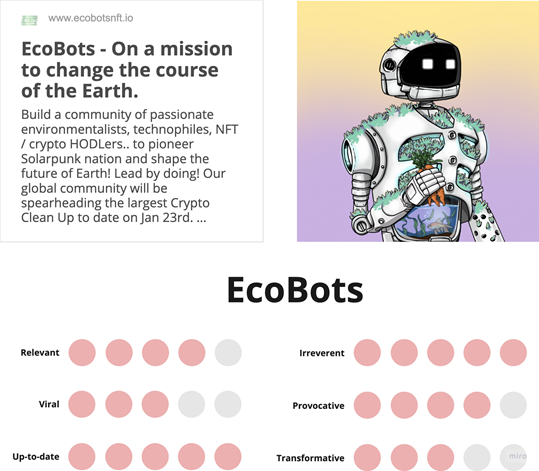
EMOTIONAL CLOTHES, FASHION REPRESENTING EMOTIONAL WELLBEING
May 16, 2022
COOLHUNTING FOR SUSTAINABILITY
May 31, 2022Deanne Elstrom wrote a blog for Futurists Club with advices ‘From A Mother’, herself, to the younger generations of Futurists Club’s readers. It was highly appreciated by you, and pretty heavily read. So I thought, being an even older Dad than Deanna a Mom, why not trying out some more advices. It turns out, rather to my own surprise, I’ve been in business and education now for four whole decades. With professorships in Amsterdam, Barcelona and Shanghai, and with a wide, exciting and sometimes — how shall I put it? — challenging range of international business clients.
What did I learn?
Way too much for a Medium post. But I’ve distilled my experience and sometimes ‘wisdom’ into just seven bite-sized lessons on how to deal with human beings in professional contexts without losing your mind.
1.Understand the difference between reacting ‘emotionally-expressive’ and ‘instrumentally-rational’.
Emotionally-expressive is about shouting out your anger, frustration, disdain on the spot. It can feel utterly satisfying. Telling your superior that he, or she, is a nitwit & a moron with a narcissistic disorder that everyone recognizes but no one dare mention to his face, can feel like beautiful, liberating blessing. It always makes a great scene in the movies.
But there is a downside to the emotional pay-off and the imagined applause: it won’t help you very much when it comes to your next meeting. Reacting instrumentally-rational is the wiser option. Bide your time, put on a radiantly smiling face when confronted with yet another moronic stupidity and learn the supple art of bending like the reed instead of being brittle like a brick wall. When this is too painful or raises your blood pressure dangerously, then by all means return to the emotionally-expressive method — but understand you will pay for it later. Though maybe with a healthier heart.
When I started off in my long, long career, from time to time I took the emotional-expressive path, which gave me huge relief. Later, I more often took the instrumentally-rational road. It brought me closer to where I wanted to be.
2.Big decision to make? Always, always sleep on it. Maybe more than one night.
You can only decide whether to take the emotionally-expressive way or the instrumentally-rational one — or even which is which — with a cool, rested mind.
3.Pick your fights and develop a smooth back regarding all the rest.
A smooth back, as the Dutch expression has it, enables you to slide off all the worries and problems that otherwise would have balanced on your shoulders eternally. When you are below 40 that is doable (no guarantees offered, though). When you are over that threshold a smooth back is an absolute necessity. With a smooth back it is also easier to pick the fights that are really dear to you — and focus on them.

A few years ago a group of female teachers asked me for help to change the curriculum of the university department where we all worked, in the direction that suits us all. They met resistance from above. I thought it was more their task than mine, as it was more their future curriculum than mine. As a male authority — these things still exist — I asked them whether they knew Katy Perry. And her hit song ‘Roar’. They did. I invited them to do the roaring themselves. After all, aren’t they revered as the gender of the future? Don’t leave the roaring to an aging, but powerfully vital, guy.
To me, this reaction took the middle road between emotionally-expressive and instrumentally-rational. Katy Perry saved me.
4.Never ever tell anyone ‘I Told You So’. Especially when you did — more than once.

People hate you for being right. Absolutely loathe you for it. Of course they do. It’s rubbing their noses in their own stupidity. It’s arrogant — if satisfyingly so. Although you may tell yourself you are helping them learn by reminding them of their error, no one receives the news of their idiocy well. Probably because mum or dad delivered it repeatedly during puberty — and maybe even in your middle age (“inner voice’). They might have been right, as you probably realize by now. But no one likes to be reminded of it.
So, once again: never ever say I Told You So — neither verbally nor non-verbally.
No cheating!
5.Be loyal, but up to a point.
Loyalty makes you a likable person. It also keeps you healthy: commitment and involvement have that effect because they enhance your sense of meaningfulness. But don’t overdo it. Assess with wisdom and honesty how much devotion your company, boss and work deserve. On the other hand, don’t develop a ‘You Want Loyalty? Hire A Cocker Spaniel!’ mindset. Too much cynicism can kill — and certainly makes unhappy. Neither let your loyalty turn into slavery. If they don’t appreciate what you bring to the table, let them eat alone.
6.Meeting a person for the first time? Apply the rule of listening 70% of the time and talking only 30%.
Use that 70% to assess what makes your conversation partner tick. Ask further and ask deeper. Over and over again. Only then open your mouth. Meeting a person after the first time? Assess whether the 70–30 rule is still the best one.
7.Do What You Promise.
I regularly ask my students what they mention about themselves while applying for a job or an internship. A big majority stresses their commitment, their passion and their unlimited enthusiasm. These are characteristics that everyone knows are prone to inflation. Even when they are true, they are perfectly undistinctive and utterly boring.
Much, much better to simply state that you are in the habit of meeting all your deadlines, actually finishing many tasks 24 hours before the deadline. THAT is impressive. THAT is what many bosses and organizations utterly need. Due to the fact that we are living in a world where about 80% of the work force does NOT live up to it.
Talking about respecting deadlines is better than emphasizing your willingness to go ‘the extra mile’. That sounds nice but also pretty abstract. The deadline promise is much more operational and precise — and therefore substantial and impressive. Promise to deliver — and suggest to make it measurable. Though of course this means that you may be reminded of your promises if you don’t measure up.
But please, whatever you do don’t’ resort to vacuous clichés around passion, total commitment and pure enthusiasm. It’s piffle.
Forty years of work experience. Seven points. That’s what it all boiled down to. These principles have kept me sane — more-or-less — and free from burn-out.
They could do the same for you — without having to learn the hard way.





1 Comment
Wrote this myself some time ago. Still like it, but well, there is 40 years of experience behind it :-). Will present it in another form on Tiktok as well 🙂